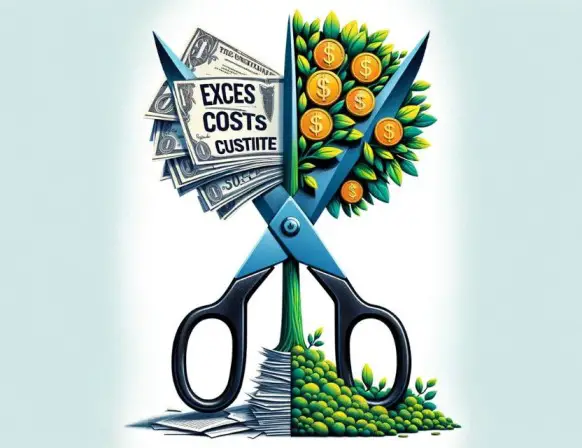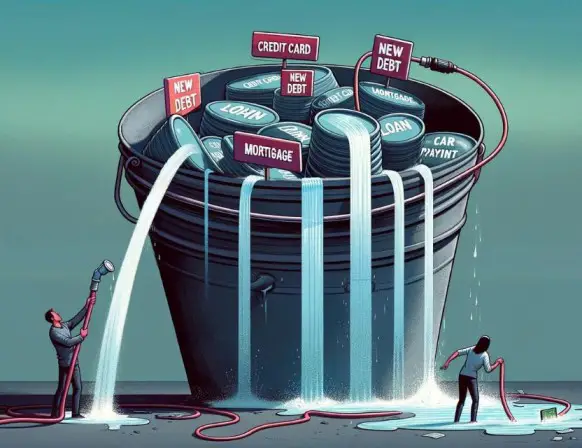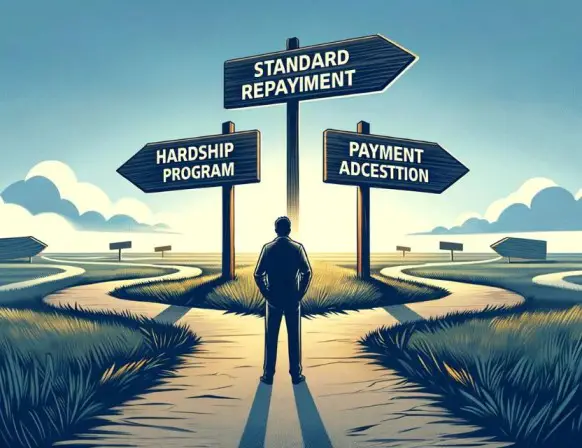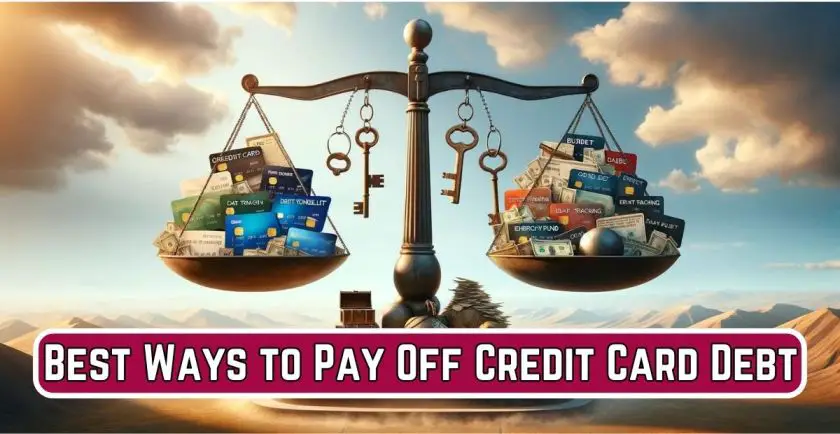In an era where digital transactions dominate, credit cards have transitioned from a convenience to a crucial component of many individuals’ financial arsenals. However, with this convenience comes the potential for significant debt burdens that can hinder financial freedom. The key to reclaiming control lies in developing a strategic approach to paying off credit card debt. This guide outlines effective strategies to navigate out of debt and towards a brighter financial future.
Understanding Your Debt
The first step on your journey to debt freedom is to fully understand the extent of what you owe. Compile a comprehensive list of your credit card debts, noting the balance, interest rate, and minimum payment for each card. This clarity is crucial for formulating an effective repayment strategy.
Strategies for Paying Off Credit Card Debt
| Strategy | Description | Pros | Cons |
|---|---|---|---|
| Debt Avalanche Method | Prioritizes paying off cards with the highest interest rates first, while maintaining minimum payments on other debts. | Saves money on interest over time, reducing the total cost of debt. | Requires discipline and patience, as it may take time to pay off the first account. |
| Debt Snowball Method | Focuses on paying off cards with the smallest balances first to build momentum and achieve quick wins. | Provides psychological wins and motivation as debts are cleared, encouraging continued effort. | May result in paying more interest over time compared to the avalanche method. |
| Debt Consolidation | Involves consolidating multiple debts into a single payment, potentially at a lower interest rate, using balance transfer credit cards or personal loans. | Simplifies monthly payments and can reduce interest rates, making debt management easier. | May involve fees for balance transfers or loan origination, and requires good credit for the best rates. |
| Budgeting for Debt Repayment | Emphasizes creating a realistic budget that prioritizes debt repayment, identifying areas to cut expenses, and finding ways to increase income. | Helps to track and control spending, ensuring that debt repayment remains a priority. | Requires strict adherence to a budget and may necessitate lifestyle changes to free up funds for debt repayment. |
Paying off credit card debt requires a well-thought-out strategy that aligns with your financial situation and goals. Here, we delve deeper into the most effective methods to eliminate credit card debt, providing you with the tools and knowledge to select the best approach for your circumstances.
Debt Avalanche Method
The Debt Avalanche method is a strategic approach focused on reducing the amount of interest you pay over the life of your debt. Here’s how it works:
- List Your Debts: Start by listing out all your credit card debts from the highest interest rate to the lowest.
- Minimum Payments: Continue making the minimum payments on all your cards to avoid penalties and further damage to your credit score.
- Extra Payments: Allocate any extra funds you have to the card with the highest interest rate, paying significantly more than the minimum.
- Repeat the Process: Once the highest interest card is paid off, move to the next highest, rolling over the amount you were paying on the previous card to accelerate repayment.
This method is mathematically efficient, saving you money in the long run, but requires discipline and patience, as it may take time before you pay off your first account.
Debt Snowball Method

The Debt Snowball method flips the focus to the size of the debt rather than the interest rate, creating a psychological boost to help maintain your motivation. The steps include:
- Organize Your Debts: List your credit card debts from smallest to largest balance, regardless of the interest rate.
- Maintain Minimum Payments: As with the Avalanche method, keep up with minimum payments on all cards.
- Extra Towards the Smallest: Direct any extra funds to the card with the smallest balance, aiming to pay it off as quickly as possible.
- Roll Over Payments: After the smallest debt is cleared, apply its payment to the next smallest debt, creating a “snowball” effect.
This method can offer quicker wins, which may help you stay motivated to continue paying down your debt.
Debt Consolidation
Debt consolidation simplifies your debt repayment by combining multiple debts into a single loan or payment plan, often with a lower interest rate. This strategy can be implemented in several ways:
- Balance Transfer Credit Cards: These cards offer low introductory APRs for transferred balances. It’s ideal for consolidating multiple high-interest card balances onto a single card. The goal is to pay off the balance before the promotional period ends and the standard interest rate applies.
- Personal Loans: A consolidation loan from a bank or online lender can pay off multiple credit cards, leaving you with one fixed monthly payment. These loans often come with lower interest rates compared to credit cards, potentially saving you money and shortening the repayment period.
Budgeting for Debt Repayment

No matter which method you choose, a solid budget is critical. A budget helps you identify unnecessary expenses that can be reduced or eliminated, freeing up more money for debt repayment. Consider using budgeting apps or spreadsheets to track your spending and adjust as needed to prioritize your debt repayment goals.
Implementing Your Strategy
Once you’ve chosen your strategy, the key to success is consistency and adaptation. Life circumstances may change, and your strategy may need to be adjusted accordingly. Regularly review your budget and progress, and celebrate milestones to keep motivated.
Stay Informed and Flexible
Staying informed about your financial options and remaining flexible in your approach will allow you to navigate through challenges and adjust your plan as necessary to stay on track towards becoming debt-free.
By understanding and applying these strategies, you’re not just working towards paying off your debt; you’re building a foundation for a more secure financial future.
Negotiating with Creditors
Successfully negotiating with creditors can be a crucial step in your journey to pay off credit card debt. It involves communicating directly with your creditors to request more favorable terms on your debt, which can include lower interest rates, a reduced settlement amount, or changes to your payment plan. Here’s a detailed approach to negotiating with creditors:
Preparation
- Review Your Financial Situation: Before reaching out, have a clear understanding of your financial position. Know how much you owe, your interest rates, and what you can realistically afford to pay. Prepare a budget that outlines your income, expenses, and the amount you can dedicate to debt repayment.
- Research Your Options: Understand the types of relief creditors might offer, such as hardship programs, debt settlement, or payment plan adjustments. Knowing these can help you propose a solution that fits your needs and is within the creditor’s policies.
- Gather Documentation: Compile financial statements, a list of your debts, and any correspondence related to your accounts. This documentation will support your case and demonstrate your financial hardship or the effort you’re making to resolve your debt.
Contacting Creditors
- Initiate Contact: Reach out to your creditor’s customer service or hardship department. It’s often beneficial to start this conversation over the phone, followed by written confirmation of any agreements made.
- Explain Your Situation: Clearly and honestly explain your financial hardship without being overly emotional. Whether it’s due to unexpected medical bills, job loss, or any other significant life event, providing a context can help in negotiations.
- Propose a Solution: Based on your research and understanding of your financial capacity, propose a realistic solution. Whether it’s lowering your interest rate, waiving late fees, extending your loan term, or settling the debt for a lump sum that’s less than you owe, make sure the proposal is something you can adhere to.
- Be Polite but Persistent: Negotiations may not be successful on the first attempt. Be polite, stay calm, and be prepared to speak with multiple people or make several calls. Persistence and a positive attitude can go a long way in negotiations.
If Negotiations Stall
- Consider Professional Help: If you’re struggling to negotiate on your own, you might consider hiring a debt settlement company or consulting with a credit counseling agency. Credit counselors can offer advice, help you manage your debt, and even negotiate with creditors on your behalf. However, it’s crucial to research and choose reputable organizations.
- Document Everything: Keep detailed records of all communications with creditors, including names, dates, and the details of any agreements. This documentation is essential if there are any disputes or misunderstandings in the future.
- Understand the Impact: Be aware that some negotiation outcomes, like debt settlement, can affect your credit score. Make sure you understand all the implications before agreeing to any terms.
Legal Considerations
In some cases, creditors may not be willing to negotiate or the proposed terms may not be feasible for your situation. It’s important to know your rights under the Fair Debt Collection Practices Act (FDCPA) and consult with a legal professional if you’re facing legal action from creditors.
Avoiding Common Pitfalls

When working towards paying off credit card debt, it’s crucial to navigate the journey with caution to avoid common pitfalls that can derail your progress. Understanding these potential missteps and how to steer clear of them can enhance your strategy and help ensure a smoother path to debt freedom.
Accruing More Debt
One of the most significant pitfalls during debt repayment is continuing to accrue more debt. It’s essential to:
- Stop Using Credit Cards: If possible, stop using your credit cards while you are paying off your debt. Using cash or a debit card for purchases can help you live within your means and prevent increasing your debt load.
- Emergency Fund: Build a small emergency fund, even if it’s just a few hundred dollars, to cover unexpected expenses without resorting to credit cards.
Ignoring the Root Cause
Successfully paying off debt requires addressing the behaviors or circumstances that led to the debt in the first place:
- Budgeting: Regularly update and stick to a budget that accounts for your income, expenses, and debt repayment. This helps in managing your finances effectively and prevents overspending.
- Financial Education: Enhancing your understanding of personal finance can empower you to make informed decisions and avoid future debt. Consider resources like books, podcasts, or financial literacy courses.
Failing to Adjust Your Strategy
Your financial situation can change, necessitating adjustments to your debt repayment strategy:
- Regular Reviews: Periodically review your budget and debt repayment plan to ensure they still fit your current financial situation. Be prepared to adjust your approach if necessary.
- Stay Flexible: If you encounter financial setbacks, consider which areas of your budget can be temporarily reduced to keep debt repayment on track. Flexibility can help you maintain progress even during challenging times.
Neglecting Communication with Creditors

Avoiding communication with your creditors can lead to missed opportunities for assistance and potentially worsen your financial situation:
- Stay Proactive: If you’re struggling to make payments, proactively contact your creditors to discuss your situation before it leads to missed payments or defaults.
- Explore Hardship Programs: Many creditors offer hardship programs that can temporarily lower interest rates or minimum payments. These programs can provide breathing room to get your finances back on track.
Overlooking Mental Health
The stress of debt can take a toll on your mental health, leading to feelings of anxiety and overwhelm:
- Seek Support: Don’t hesitate to seek support from friends, family, or professionals. Talking about your challenges can provide relief and potentially offer new solutions.
- Celebrate Progress: Recognize and celebrate each milestone you achieve in your debt repayment journey. This can boost your morale and motivation to continue.
Relying Solely on Debt Settlement or Bankruptcy
While debt settlement and bankruptcy might seem like quick fixes, they come with long-term consequences and should be considered last resorts:
- Understand the Implications: Both debt settlement and bankruptcy can significantly impact your credit score and financial standing for years. Fully research and consider the long-term effects before pursuing these options.
- Explore All Alternatives: Ensure you’ve explored all other debt repayment strategies and consulted with a financial advisor or credit counselor before considering these drastic steps.
Tools and Resources
Successfully navigating the journey to pay off credit card debt often requires more than just willpower and determination. Leveraging the right tools and resources can provide the guidance, support, and motivation needed to efficiently manage and eliminate debt. Here’s a detailed look at some valuable tools and resources that can assist you in your debt repayment journey.
Budgeting Apps
Functionality: Budgeting apps help you track your spending, categorize expenses, and set financial goals. They can connect to your bank accounts, credit cards, and other financial accounts to give you a comprehensive view of your finances in real time.
Benefits: By providing insights into where your money is going, these apps can help you identify areas where you can cut back and redirect funds towards debt repayment. They also offer features like setting alerts for due dates to ensure you never miss a payment.
Popular Options: Mint, You Need A Budget (YNAB), and PocketGuard are among the widely used budgeting apps, each with unique features tailored to different budgeting styles.
Debt Repayment Calculators
Functionality: These online tools allow you to input your debt information, including balances, interest rates, and monthly payments, to see how different repayment strategies will affect your payoff timeline and the total interest paid.
Benefits: Debt repayment calculators can help you visualize the impact of applying extra payments to your debt and compare the effectiveness of different repayment methods, such as the debt avalanche versus the debt snowball strategy.
Where to Find: Many financial websites and credit counseling agencies offer free debt repayment calculators. Bankrate, NerdWallet, and Credit Karma provide some of the most user-friendly calculators.
Credit Counseling Agencies
Services: Credit counseling agencies offer a range of services, including debt management plans (DMPs), budgeting advice, and financial education. A DMP can consolidate your credit card payments into one monthly payment, often with reduced interest rates and waived fees.
Benefits: Working with a credit counseling agency can simplify your debt repayment process and potentially save you money on interest. It also provides a structured plan and professional guidance to help you manage your debt more effectively.
Choosing an Agency: Look for agencies accredited by the National Foundation for Credit Counseling (NFCC) or the Financial Counseling Association of America (FCAA). These agencies adhere to strict standards and offer counseling by certified professionals.
Read More-
Financial Literacy Resources
Importance: Enhancing your financial literacy can empower you to make informed decisions about your money and avoid future debt. Knowledge about budgeting, saving, investing, and understanding credit can provide a foundation for long-term financial health.
Resources: Websites like Investopedia, Khan Academy, and the Consumer Financial Protection Bureau (CFPB) offer free educational content. Additionally, many local libraries and community centers provide workshops and seminars on personal finance topics.
Peer Support Groups
Functionality: Peer support groups, whether online or in-person, bring together individuals facing similar financial challenges. These groups offer a platform to share experiences, tips, and encouragement.
Benefits: Joining a peer support group can provide emotional support and motivation, helping you feel less isolated in your debt repayment journey. Learning from others’ successes and setbacks can offer valuable insights and strategies.
Finding Groups: Online forums, social media groups, and community organizations often host debt repayment and financial support groups. Websites like Reddit and Facebook have active communities focused on personal finance and debt freedom.
Conclusion
Paying off credit card debt is a journey that requires patience, discipline, and a solid strategy. By understanding your debt, choosing the right repayment strategy, and avoiding common pitfalls, you can navigate your way to financial freedom. Remember, every payment is a step towards a debt-free life, offering not just financial relief but also peace of mind.

